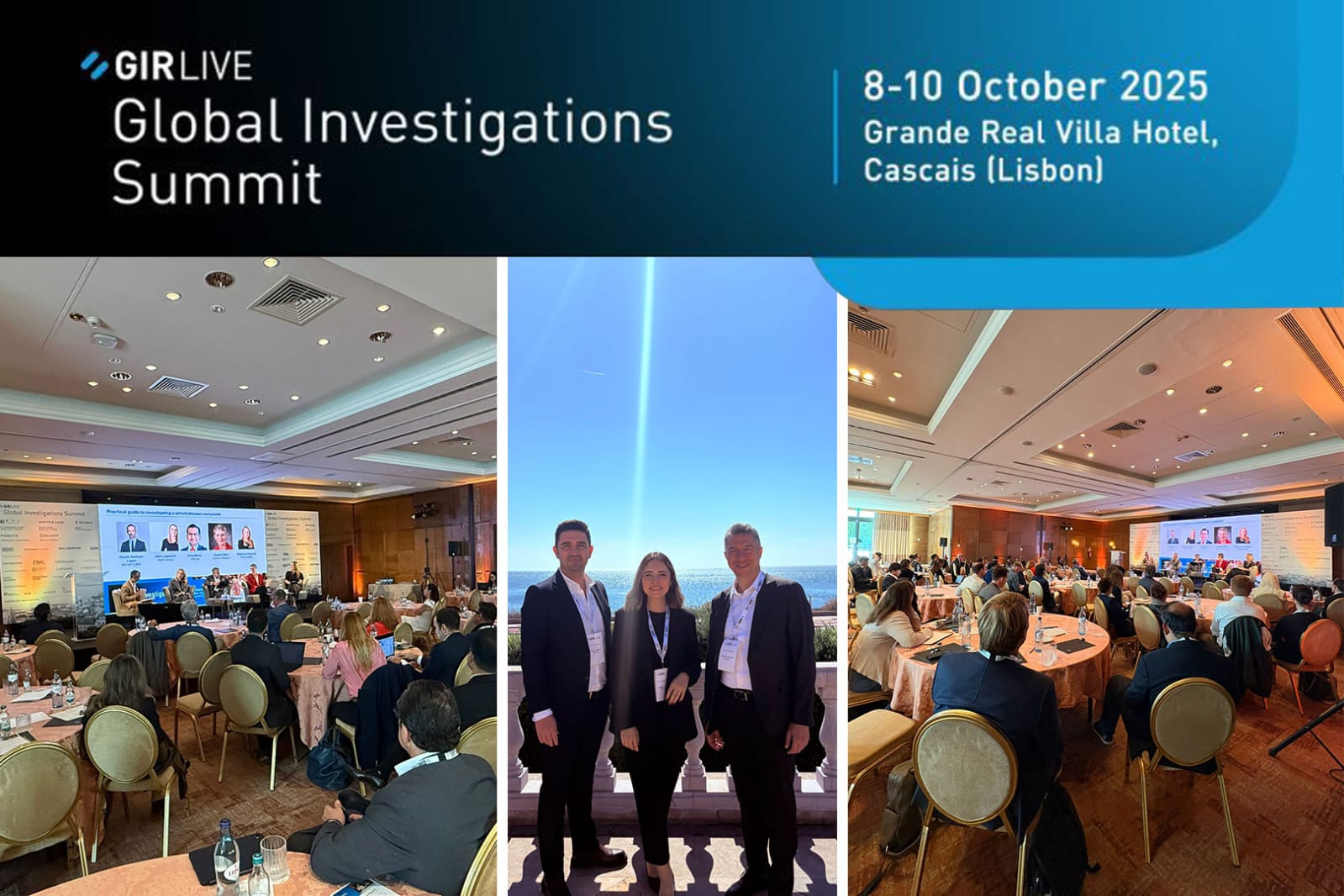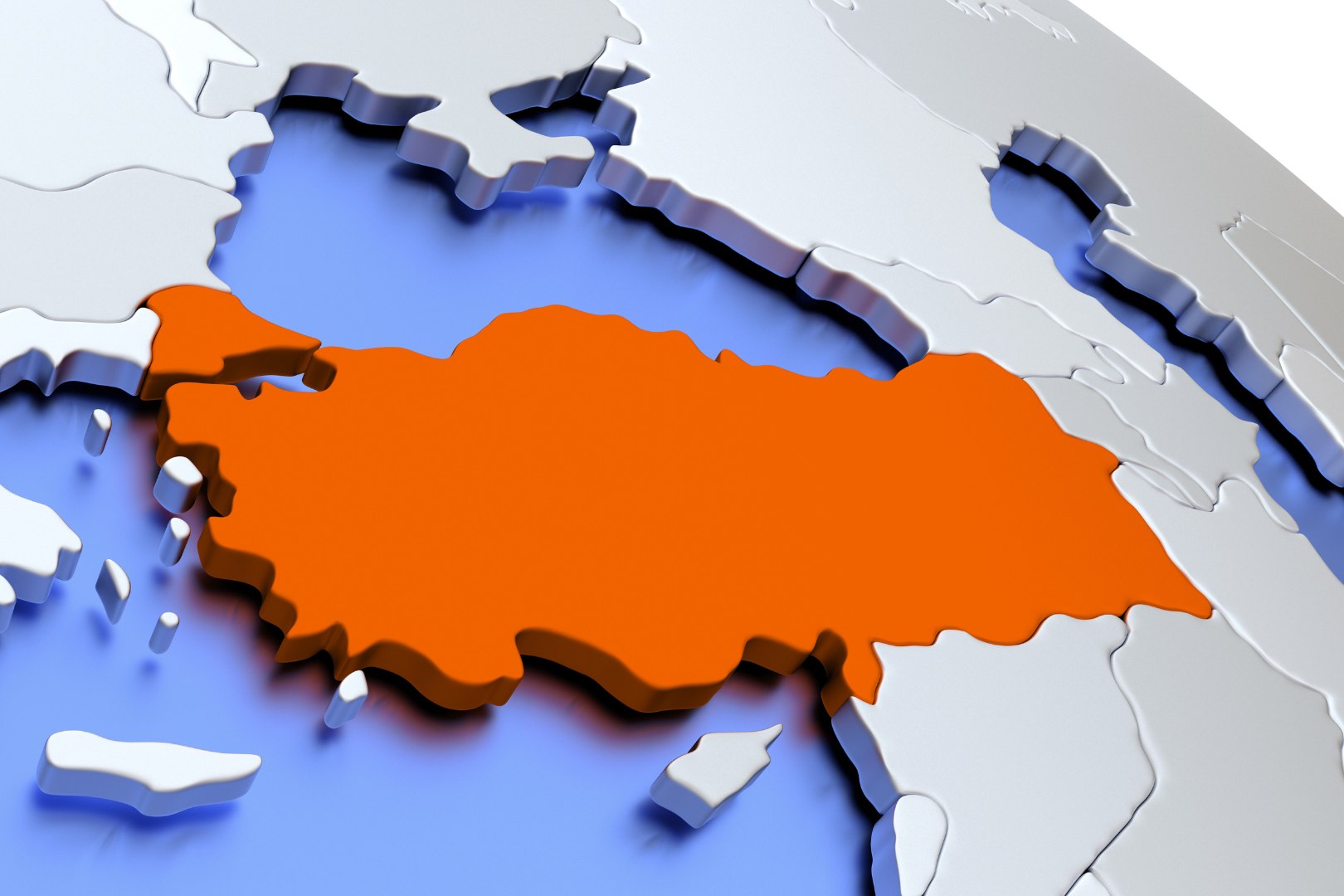
What’s on the Global Investigation Agenda? – Lisbon Notes
CerebraThe Cerebra Forensic & Integrity team, Fikret Sebilcioğlu, Gizem Taştemel Dinçkan and Serhat Tümüklü, attended the GIR Live: Global Investigations Summit held in Lisbon between 8–10 October 2025.
Now in its fourth edition, the Summit once again brought together the global investigations community — including senior private practitioners, in-house counsel, forensic accountants and fraud investigators, government representatives, and consultants — to discuss the latest trends, enforcement developments, and best practices in conducting investigations.
Throughout the three-day event, our team closely followed insightful discussions on the evolving landscape of corporate enforcement and sanctions, the role of whistleblowers in uncovering misconduct, and international cooperation in anti-corruption efforts. The sessions featured prominent speakers from the US Department of Justice, OECD Working Group on Bribery, and enforcement authorities from the UK, France, and Switzerland, offering valuable perspectives on current priorities and future trends.
Participating in such a global forum allows Cerebra to stay at the forefront of investigative and compliance developments, strengthen our international network, and continue providing our clients with expertise aligned with the latest global standards.
Key Discussions and Insights from the Conference
At the panel “Navigating Enforcement in the Next Three Years of the Trump Administration” former DOJ Criminal Division head Nicole Argentieri highlighted that the Department’s revised corporate enforcement policy introduces “creative” changes encouraging voluntary self-disclosures, though many companies remain cautious until the DOJ’s track record becomes clearer. Nicolas Bourtin (Sullivan & Cromwell) noted that firms continue to prioritize FCPA compliance, while Keisha Stanford (Jenner & Block) said anti-bribery due diligence in M&A remains strong. The DOJ’s new monitorship memo seeks to streamline oversight, and Stanford added that companies are now more cautious with disclosures, as investigations may broaden and reflect political priorities.
During the fireside chat, Jonathan Taylor, the UK whistleblower who exposed large-scale bribery at SBM Offshore in 2012, shared how his life was upended after reporting the misconduct — leading to imprisonment in Croatia, loss of employment, and ongoing legal battles. Taylor criticized the lack of whistleblower protection and ineffective investigative authorities, urging companies to build credible and empowered compliance teams.
Following his remarks, Angela Main, Chief Compliance Officer of Zimmer Biomet, described how her company handles whistleblower reports seriously, emphasizing internal investigations, confidentiality options, and leadership involvement in oversight. She also noted that despite the DOJ’s new corporate enforcement guidance, companies remain cautious about voluntary disclosures, as there is still no real guarantee of protection or favorable treatment.
Kathleen Roussel, chair of the OECD Working Group on Bribery, expressed optimism that the United States will return to a balanced approach in enforcing the Foreign Corrupt Practices Act (FCPA) after recent policy shifts under the Trump administration. She noted that the OECD continues close engagement with the US while maintaining an even-handed peer review process among its 46 member countries. Roussel emphasized the working group’s role in driving anti-bribery reforms and accountability, but acknowledged that enforcement remains uneven, with 18 members yet to conclude a single foreign bribery case. She called for stronger dialogue with the private sector, academia, and civil society to understand on-the-ground challenges, such as facilitation payments and weak prosecutorial capacity. Roussel also warned against harmful misconceptions — including the belief that bribery is necessary to compete — and defended the vital role of whistleblowers, urging fair treatment and recognition of their importance in uncovering corruption.
Officials from the UK Serious Fraud Office (SFO), France’s National Financial Prosecution Office (PNF), and the Swiss Attorney General’s Office (OAG) discussed the progress of their newly formed International Anti-Corruption Prosecutorial Taskforce, launched in March 2025 to strengthen intelligence sharing and cooperation in tackling bribery and money laundering. The leaders — Sara Chouraqui, Philippe Jaeglé, and Matthias Portmann — emphasized that the task force is a long-term initiative whose tangible results will take years to materialize. They clarified that the group is not a supranational body but a collaboration based on mutual legal assistance and national jurisdictional rules. The officials highlighted their aim to improve efficiency, case coordination, and measurable outcomes, noting that while other countries have shown interest in joining, membership will remain limited to the three founding nations for now. They also pointed to growing operational ties and trust among the agencies, describing the partnership as creating a “real connection” that enhances cross-border enforcement capacity.
Cerebra’s Perspective
At Cerebra, we view global forums like the GIR Live Summit as more than just opportunities to exchange ideas — they are platforms that help us align our investigative and compliance practices with the world’s most respected standards. Discussions around enforcement priorities, whistleblower protection, and cross-border cooperation reaffirm the importance of integrity, transparency, and accountability — principles that guide every investigation we undertake.
Our commitment remains clear: To help organizations navigate complex risks, detect misconduct early, and build cultures where ethical conduct is not only expected but embedded in the way business is done.







